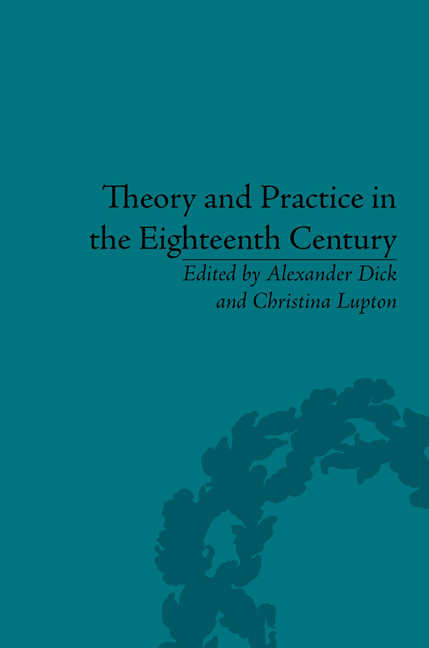Book contents
- Frontmatter
- CONTENTS
- Notes on Contributors
- Introduction
- I Writing Philosophy
- II Reading Hume
- 5 Preposterous Hume
- 6 Aesthetic Sensibility and the Contours of Sympathy Through Hume's Insertions to the Treatise
- 7 David Hume and Jane Austen on Pride: Ethics in the Enlightenment
- 8 Hume, Religion, Literary Form: Dialogues Concerning Natural Religion
- III Thinking Literature
- Notes
- Works Cited
- Index
8 - Hume, Religion, Literary Form: Dialogues Concerning Natural Religion
from II - Reading Hume
- Frontmatter
- CONTENTS
- Notes on Contributors
- Introduction
- I Writing Philosophy
- II Reading Hume
- 5 Preposterous Hume
- 6 Aesthetic Sensibility and the Contours of Sympathy Through Hume's Insertions to the Treatise
- 7 David Hume and Jane Austen on Pride: Ethics in the Enlightenment
- 8 Hume, Religion, Literary Form: Dialogues Concerning Natural Religion
- III Thinking Literature
- Notes
- Works Cited
- Index
Summary
Completed in 1751 and read in manuscript in the early 1750s by friends, Hume's Dialogues Concerning Natural Religion was not published until three years after his death, in 1779. Hume's friends had advised him not to publish during his lifetime, and he clearly saw the wisdom of not confirming the suspicions of a public that regarded him as a dangerous infidel, even if the opinions in the Dialogues could readily be found in his earlier works. Nonetheless, as J. C. A. Gaskin notes, Hume revised the manuscript in 1761 and again in 1776, making two fair copies of the revised work and telling Adam Smith in a letter that he intended to publish the Dialogues if he lived a few years longer. Although he did not mention it in the short autobiographical piece he wrote just before his death, ‘My Own Life’, Hume clearly thought of the Dialogues as among his best works. Indeed, he wrote to Adam Smith ‘that nothing can be more cautiously and more artfully written’.
During the composition of the first version of the Dialogues in March 1751 Hume outlined to his friend Gilbert Elliot his approach to the crucial generic problem inherent to the philosophical dialogue. Hume's aim was to avoid the ‘vulgar Error … of putting nothing but Nonsense into the Mouth of the Adversary’. Oddly, having claimed that he has made Cleanthes (the more or less anthropomorphic theist) the ‘Hero’ of the dialogues, he appealed to Elliot for material to strengthen ‘that Side of the Argument’. He also admitted that his propensity for the anti-theist position, ‘to the other Side, crept in upon me against my Will’ and recalled his recent burning of a manuscript he wrote in his teens in which he attempted to ‘confirm the common Opinion’ about religion but found that doubts kept stealing in upon him in a ‘perpetual Struggle of a restless Imagination against Inclination, perhaps against Reason’. Had he and Elliot been neighbours, says Hume, they might have enacted the dialogue, with Elliot as Cleanthes and Hume playing Philo (the sceptic), a part he ‘coud have supported naturally enough’.
- Type
- Chapter
- Information
- Theory and Practice in the Eighteenth CenturyWriting Between Philosophy and Literature, pp. 139 - 160Publisher: Pickering & ChattoFirst published in: 2014



